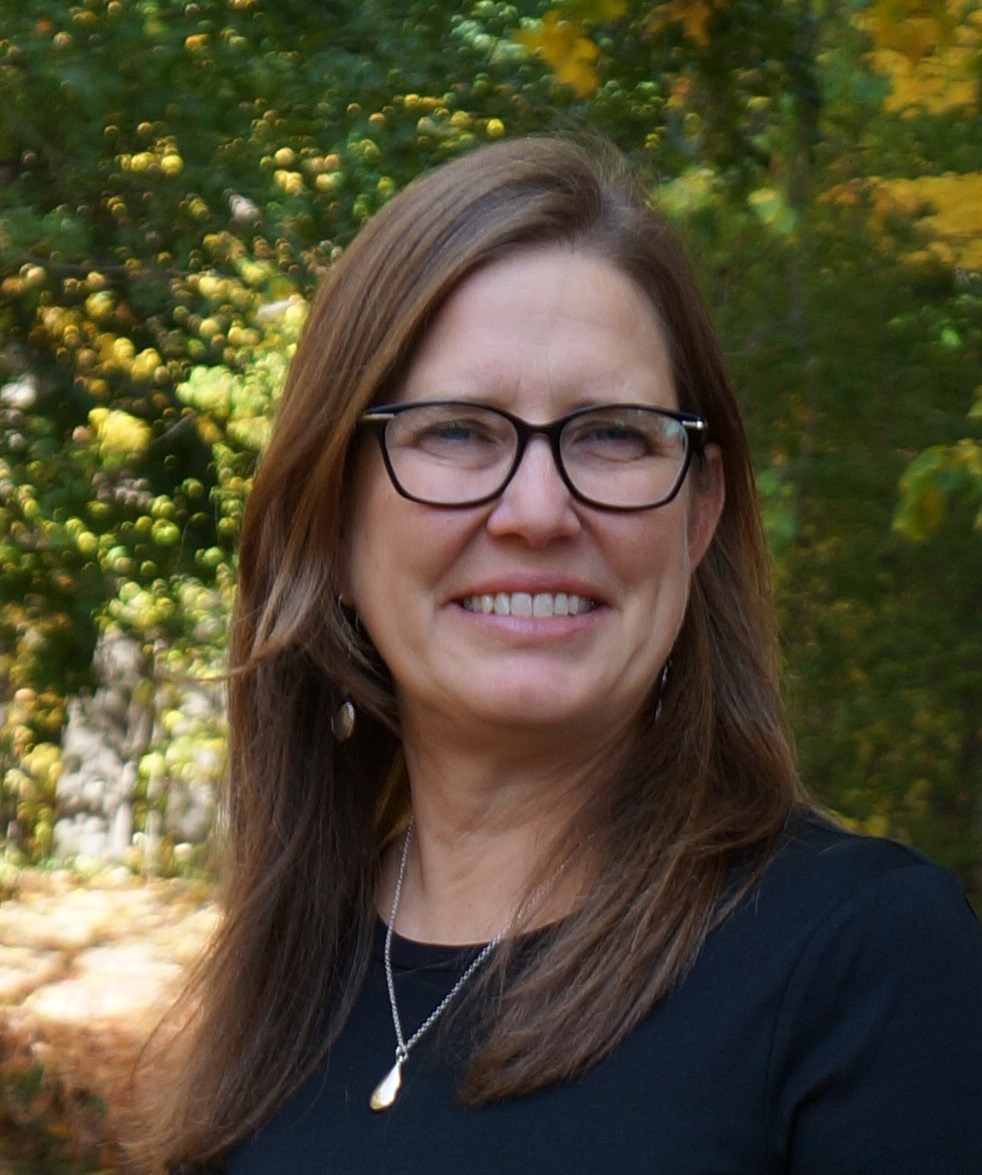CS 105
Introduction to Computer Programming 1
School of Computer Science
University of Waterloo
An introduction to the fundamentals of computer programming through media computation. Students will learn to write interactive graphical programs. Fundamental language concepts such as variables, conditionals, loops, functions, and arrays. Programming concepts such as coding style, modular design, testing, and debugging. Media concepts such as 2D graphics drawing, input, animation, and image processing.
Course Materials
Video lectures, lecture slides, labs, assignments, discussion forms, and other course materials can be found on LEARN. Check the course's LEARN website regularly to be kept up to date.
Similarly, all announcements will be posted on
Staff

Email: sandy.graham@uwaterloo.ca

Email: bmzister@uwaterloo.ca

Email: cs105@uwaterloo.ca

Email: cs105@uwaterloo.ca

Email: cs105@uwaterloo.ca


Note
If you are not currently enrolled in the course, please direct all inquiries to the Instructional Support Coordinator, Barbara Daly: bmzister@uwaterloo.ca
Consulting Hours
Office Hours
Day |
Time * (Eastern Time) |
Communication Tool |
Staff |
|---|---|---|---|
| Mondays | 10:00 – 12:00
13:00 – 14:30 14:30 – 16:30 | MS Teams | Sandy
Christopher Matthew |
| Tuesdays | 10:00 – 12:00
12:00 – 14:00 14:00 – 15:30 | MS Teams | Lewis
Allen Christopher |
| Wednesdays | 11:00 – 13:00 2
15:00 – 16:00 2 | MS Teams | Sandy 2
Christopher 2 |
| Thursdays | 10:00 – 12:00
13:00 – 14:30 14:30 – 16:30 | MS Teams | Sandy
Serena Matthew |
| Fridays | 8:30 – 10:30
10:30 – 12:00 13:00 – 14:30 | MS Teams | Allen
Lewis Serena |
* Times subject to change
† By appointment only. Please make an appointment before you come.
Note: Office hour appointments can be made outside of these times with the ISAs or course instructor, via email, MS Teams or Bookings.
1 Dec 6 Only: On-call for Final Project. Time may be change without piror notice
2 Exam Week Only: Additional Office Hours for Final Exam
On-campus office hours are held in the Computer Science Tutorial Centre, in MC 4065 (unless otherwise specified). The specific location within the centre, ISA's name, and office hour times can be found on a white board standing next to the entrance to the centre.
Appointment for Office Hours
| Staff | Availability |
|---|---|
| Christopher | Online In-person |
| Lewis | Online In-person |
| Serena | Online |
Schedule
All labs, assignments, and weekly quizzes are due at 11:59 pm (if not otherwise specified)
Please keep in mind that all dates expressed in this schedule are tentative and subject to change at any time.
| Week | Lectures | Concepts | Assesssments | Due Dates |
| Week 1: Sept 7 — 13 | 00: Intro and Media Computing
01: Algorithms and Code 02: Drawing |
Algorithms Syntax Errors Program State Colour Formats hexadecimal | Lab 0 | Mon Sept 12 |
| Week 2: Sept 14 — 20 | 03: Atrributes
04: Interaction | 2D Coordinate
Statements Commenting Control Flow Events | Lab 1
Lab 2 Weekly Quiz | Mon Sept 19
Wed Sept 21 |
| Week 3: Sept 21 — 27 | 05: Variables | Declaration vs. Initialization
Memory Types Binary Numbers Precision | Lab 3
Lab 4 Assignment 1 Weekly Quiz | Mon Sept 26
Fri Sept 23 Wed Sept 28 |
| Week 4: Sept 28 — Oct 4 | 06: Conditionals | Boolean Logic
Relational Expressions | Lab 5
Lab 6 Assignment 2 Weekly Quiz | Tue Oct 4 ‡
Mon Oct 3 ‡ Wed Oct 5 |
| Week 5: Oct 5 — 18 | 07: Loops | While Loops
For Loops | Lab 7
Lab 8 Assignment 3 Weekly Quiz | Mon Oct 17
Fri Oct 7 Wed Oct 19 |
| Reading Week
Oct 10 — 14 | ||||
| Week 6: Oct 19 — 25 | 07: Loops
08: Functions | Nested Loops Modularization Arguments | Lab 9
Lab 10 Assignment 4 Weekly Quiz | Mon Oct 24
Fri Oct 21 Wed Oct 26 |
| Week 7: Oct 26 — Nov 1 | 08: Functions
09: Arrays | Returning Values
Simple Collections | Lab 11
Lab 12 Assignment 5 Weekly Quiz | Oct 31
Oct 28 Nov 2 |
| Week 8: Nov 2 — 8 | 09: Arrays | Array Operations
2D Arrays | Lab 13
Lab 14 Assignment 6 Weekly Quiz | Mon Nov 7
Fri Nov 4 Wed Nov 9 |
| Week 9: Nov 9 — 15 | 10: Images | Pixels | Lab 15
Lab 16
Assignment 7
Weekly Quiz | Mon Nov 14
Fri Nov 11
Wed Nov 16 |
| Week 10: Nov 16 — 22 | 11:Debugging
12: Program Design | Testing
Modularity | Lab 17
Lab 18 Assignment 8 Weekly Quiz Week 1 of Final Project | Wed Nov 23
Wed Nov 23 * Wed Nov 23 |
| Week 11: Nov 23 — 29 | 13: Video and Sound | Lab 19
Lab 20 Weekly Quiz Week 2 of Final Project | Mon Nov 28
Wed Nov 30 | |
| Week 12: Nov 30 — Dec 6 | Course Wrap-Up | Final Project | Tue Dec 6 | |
| Final Exam: Satruday, Dec 10 16:00 |
‡: Friday, September 30 is National Day for Truth and Reconciliation. Due dates for the assignment and labs for Week 04 have been adjusted.
*: Assignment 8 due date has been adjusted from November 18 to November 23.
Grading
Breakdown
- Labs: 10%
- Quizzes: 20%
- Assignments: 30%
- Project: 10%
- Final: 30%
The plan is that there will be a corresponding assignment for each module.
Protip: Although each assignment will be weighted the same, it is inevitable that some assignments will be harder and/or require more work than others.
Labs
There are approximately 20 lab programming exercises to be completed by students.
- Lab handouts are normally posted on LEARN early Wednesday mornings, six days before the scheduled lab due date.
- There are usually two labs per week. Labs are normally due on Mondays at 11:59 PM (unless otherwise indicated), see the schedule for details.
- Labs are created by the instructor and marked by the instructional support assistants and graduate teaching assistants based on specifications drawn up by the instructor.
- The grade will typically be available on LEARN less than 1 week after the due date.
- All labs are weighted equally.
- The two labs with the lowest mark will be excluded, and the remaining labs will be weighted equally.
Quizzes
There are 10 quizzes throughout the term.
- Quizzes are available through LEARN.
- Quizzes are on Wednesdays. No extensions will be granted.
- Quizzes are timed. They are designed to be completed in 30 – 40 minutes, but you will be given 75 minutes from the starting time as long as you start at least 75 minutes before the end of the quiz period (midnight).
- They are "open book" which means you can refer to any content available on LEARN as well as any other factual or software tools such as the Open Processing editor.
- You are not allowed to email or use other means of communication to contact others to elicit an answer or even clarify a question. This includes course staff. This is an issue of fairness since course staff cannot guarantee a prompt response over the entire 24-hour period. If you have concerns about a particular question, you can follow up with an email the following day.
- The grade will typically be available on LEARN less than 1 week after the due date.
- The lowest mark will be excluded, and the remaining quizzes will be weighted equally.
Assignments
There are 8 programming assignments.
- All materials for the current week’s assignment are posted on LEARN early Wednesday mornings, ten days before the scheduled assignment due date.
- Assignments are due on Fridays at 11:59 PM (unless otherwise indicated), see the schedule for details.
- Assignments are created by the instructor and marked by the instructor, instructional support assistants, and graduate teaching assistants based on specifications drawn up by the instructor.
- The grade with feedback will typically be available on LEARN within 1 week after the assignment is due.
Grace Days
There are 5 grace days for students to use throughout the term for assignments only. They may be used for any one or combination of assignments. There is a maximum of 2 grace days that can be used per assignment. Once the 5 grace days have been used, late assignments will not be accepted by the course staff. You can check how many grace days you have remaining on Learn.
Final Project
The final project is an open-ended assignment where you design and implement a program of your choice. This is a culmination of all concepts learned throughout the term and a chance to conceive and design a complete program.
Final
There is one final exam that will be scheduled by the registrar's office.
- The final will be created by the instructor and marked by the instructor, instructional support assistants, and graduate teaching assistants based on specifications drawn up by the instructor.
Lab and Assignment Submission
All assignments and labs must be submitted to LEARN.
- It is the student’s responsibility to verify assignments and labs are submitted to the correct LEARN dropbox, in the correct format, and that the correct files were submitted.
Lab and Assignment Deadlines
Assignments and labs that are submitted late will receive a mark of 0.
- There are no deadline extensions for Labs.
- There are no deadline extensions for Quizzes.
- There are no deadline extensions for Assignments (grace period days excepted).
- There is no deadline extension for the Final Project.
After an assignment or lab due date has passed, you may still submit your work for feedback only (no marks). You must inform the CS105 Instructional Support Assistants by email so they are aware of your submission and request for feedback.
Missed Work Due to Illness
If you miss an assignment due to illness or other extenuating circumstances, email Barbara Daly to confirm the documentation needed to exempt you from the appropriate course componenets. With appropriate, authorized documentation, assignment work may be excused. If a missed assignment is excused, its weight is distributed over the remaining un-excused assignments. In the interest of understanding the course material for future assignments and exams, students who miss work are encouraged to do complete it when they are able, submit it to cs105@uwaterloo.ca, and request feedback.
Group Work
There is no group work expect Final Project. All work must be done individually.
Policies
Academic Integrity
In order to maintain a culture of academic integrity, members of the University of Waterloo community are expected to promote honesty, trust, fairness, respect and responsibility. Please take the time and go through the following:
To better understand the basic values of academic integrity and the consequences of academic misconduct please refer to Academic Integrity tutorial.
Grievance
A student who believes that a decision affecting some aspect of his/her university life has been unfair or unreasonable may have grounds for initiating a grievance. Read Policy 70, Student Petitions and Grievances, Section 4. When in doubt please be certain to contact the department's administrative assistant who will provide further assistance.
Discipline
A student is expected to know what constitutes academic integrity, to avoid committing an academic offence, and to take responsibility for his/her actions (see Academic Integrity Guidelines ). A student who is unsure whether an action constitutes an offence, or who needs help in learning how to avoid offences (e.g., plagiarism, cheating) or about 'rules' for group work/collaboration should seek guidance from the course instructor, academic advisor, or the undergraduate Associate Dean. For information on categories of offences and types of penalties, students should refer to Policy 71, Student Discipline. For typical penalties check Guidelines for the Assessment of Penalties
Appeals
A decision made or penalty imposed under Policy 70 (Student Petitions and Grievances) (other than a petition) or Policy 71 (Student Discipline) may be appealed if there is a ground. A student who believes he/she has a ground for an appeal should refer to Policy 72 (Student Appeals)
Final Grades
In accordance with Policy 46, Appendix A - Access to and Release of Student Information, the Centre for Extended Learning does not release final examination grades or final course grades to students. Students must go to Quest to see all final grades. Any grades posted in Waterloo LEARN are unofficial.
AccessAbility Services
AccessAbility Services, located in Needles Hall, Room 1401, collaborates with all academic departments to arrange appropriate accommodations for students with disabilities without compromising the academic integrity of the curriculum. If you require academic accommodations to lessen the impact of your disability, please register with them at the beginning of each academic term.
Mental Health
If you or anyone youknow experiences any academic stress, difficult lifeevents, or feelings like anxiety or depression, we strongly encourage you to seek support.
On-campus Resources
- Campus Wellness
- Counselling Services: 519-888-4567 ext 32655 / NeedlesHall North 2nd floor, (NH 2401)
- MATES: one-to-one peer support program offered by Federation of Students (FEDS) and Counselling Services
- Health Services service: located across the creek from Student Life Centre, 519-888-4096.
Off-campus Resources
- Good2Talk (24/7): Free confidential help line for post-secondary students. Phone: 1-866-925-5454
- Here 24/7: Mental Health and Crisis Service Team. Phone: 1-844-437-3247
- OK2BME: set of support services for lesbian, gay, bisexual, transgender or questioning teens in Waterloo. Phone: 519-884-0000 extension 213
Diversity
It is our intent that students from all diverse backgrounds and perspectives be well served by this course, and that students’learning needs be addressed both in and out of class. We recognize the immense value of the diversity in identities, perspectives, and contributions that students bring, and the benefit it has on our educational environment. Your suggestions are encouraged and appreciated. Please let us know ways to improve the effectiveness of the course for you personally or for other students or student groups. In particular:
- We will gladly honour your request to address you by an alternate/preferred name or gender pronoun. Please advise us of this preference early in thesemester so we may make appropriate changes to our records.
- We will honour your religious holidays and celebrations. P lease inform of us these at the start of the course.
- We will follow AccessAbility Services guidelines and protocols on how to best support students with different learning needs.
Other Sources
Respect the copyright of others and abide by all copyright notices and regulations when using the computing facilities provided for your course of study by the University of Waterloo. No material on the Internet or World Wide Web may be reproduced or distributed in any material form or in any medium, without permission from copyright holders or their assignees. To support your course of study, the University of Waterloo has provided hypertext links to relevant websites, resources, and services on the web. These resources must be used in accordance with any registration requirements or conditions which may be specified. You must be aware that in providing such hypertext links, the University of Waterloo has not authorized any acts (including reproduction or distribution) which, if undertaken without permission of copyright owners or their assignees, may be infringement of copyright. Permission for such acts can only be granted by copyright owners or their assignees.
If there are any questions about this notice, please contact the University of Waterloo, Centre for Extended Learning, Waterloo, Ontario, Canada, N2L 3G1 or extendedlearning@uwaterloo.ca
Territorial Acknowledgement
We acknowledge that we live and work on the traditional territory of the Neutral, Anishinaabeg and Haudenosaunee peoples. The University of Waterloo is situated on the Haldimand Tract, the land promised to the Six Nations that includes six miles on each side of the Grand River.